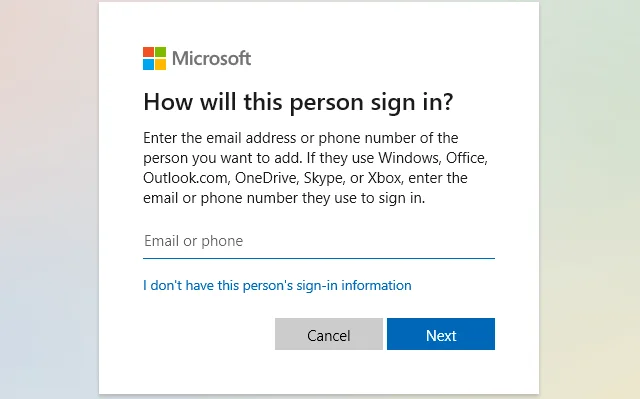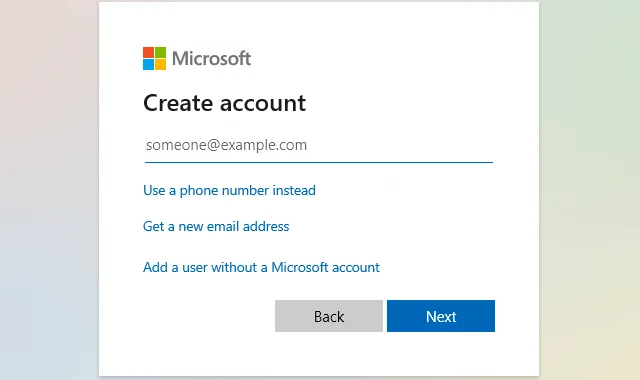My laptop was malfunctioning and I had to replace it. Thankfully, the seller issued a full refund and they'll be able to repair it to re-sell it as reconditioned, so it won't be wasted.
Data collection tactics
As I was installing Windows on my new laptop, it shocked me to see how Windows coerces users into linking a Microsoft account with their computer instead of creating a local account, so that they can gather more data from them. This is not only during installation, but also upon creating a guest account in the system, every time Windows updates, or in customer support threads.
The truth is, doing that is completely unnecessary unless the user wants to use services like cloud storage.
What's the difference between local and Microsoft accounts? Why is user data valuable?
A local user is not connected to a Microsoft account and, by extension, to an identity across the internet. Microsoft can still collect local data depending on the user's settings, but they can't link it to other information that the user may provide through using any of Microsoft's services or using the internet (Outlook, Xbox, Office, Skype, Edge, Bing/Windows search, tracking cookies...).
The more data points and connections someone provides a company, the more effectively they can be profiled and targeted for ads. Data is very valuable to advertisers, and they're generally not worried about user privacy.
If you want to limit what this company knows about you, see this following article: Windows 10 Privacy Guide: Settings Everyone Should Use.
As an example, here's the menu for adding a new account to a Windows system. Imagine you want the new account to be a local one:
Note how the option to create a local account is not clearly described ("I don't have this person's sign-in information" instead of "create a local account") and it is an unnoticeable link instead of a big button like the other options.
There's still another step after clicking that link, which prompts us to create a Microsoft account. "Add a user without a Microsoft account" will create a local account:
It goes without saying that the vast majority of companies, not just Microsoft, employ tactics like these. Privacy options are often obscured through UI-UX (User Interface and User eXperience) design. I wouldn't call the above example's UI "bad" in the technical sense, since it fulfills Microsoft's purpose. But I would call it "bad" as in morally reprehensible.
Advances in UI-UX are working both for and against us. We expect less and less friction from UIs, which means most users will not read carefully enough to even know that options that benefit them exist.
Some tech-savvy people adopt a "sheeple" narrative when talking about the average user that I dislike. It's not the user's fault, it's the corporations' fault. Doing things as quickly as possible in convenient, quick UIs is a requisite nowadays if we hope to achieve any free time. Our system doesn't account for the time we'd need to spend enforcing privacy or educating ourselves about our rights as users, citizens and human beings— just because I have an interest for learning these things in my free time shouldn't mean everyone else can.
Furthermore, companies pay skilled designers and data analysts billions of dollars to make their products addictive. Social media and most video media sites are addictive because every detail about how we interact with their app is monitored. Data that seems trivial, when gathered from millions of users, can be processed and studied in such a way that it becomes very valuable. The decisions taken based on this data, such as what content to show us next, keep us scrolling for as long as possible and gain these companies a lot of money.
So being aware of tactics like these is not enough: many users know their relationship with these sites is unhealthy, but are unable to do anything about it. What is one user against these giants, actively working to keep us hooked?
Power users are curious users
I like the process of customizing my new laptops, operating systems and software. By "customizing" I mean both the fun stuff like functional/cosmetic settings and also the chores, such as privacy-related settings (although going through these is painstaking, I derive some twisted enjoyment from spotting where and how companies try to gather data, and telling them to go fuck themselves if at all possible).
I customize software to an extent that sometimes seems excessive to others, and I know few people that could be described as power users. As defined in Wikipedia,
A power user might not have extensive technical knowledge of the systems they use but is rather characterized by competence or desire to make the most intensive use of computer programs or systems.
I encourage you to tinker with your software. The settings option is the first thing I click on when I download something new, usually without any particular purpose besides knowing what options are available. I wouldn't discover a lot of useful features I use regularly otherwise.
As we tinker more and more with our software it gets easier to imagine and actively seek tools or options that would make our life easier, because we may have encountered them previously, somewhere else.
However, being aware that a setting that literally reads:
Save your activity history to get back to what you were doing when you switch devices (consult our privacy policy)
actually entails:
Let us sell your data to third parties
probably comes with reading privacy guides, not just tinkering.
But it's cool to start somewhere, and you'll get useful things out of it.

